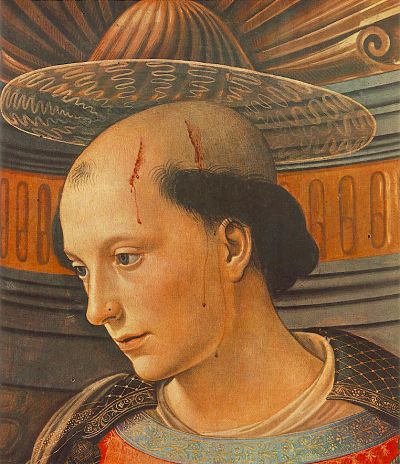Sticks and stones may break my bones,
but words will never hurt me.

How did such an obviously false rhyme get passed down to me on the playground?* Words are much more hurtful than getting punched.
I don’t remember a single fight that still matters to me, but several slurs from elementary school still sting.
When kids in Rochester called me “Reb” in fourth grade, because of my West Virginia accent, it hurt. A teacher said my accent would make every line I delivered in the school play funnier. I objected so strenuously based on my passion for all things Lincoln and Grant combined with family heritage that they gave me the nickname: “Yankee.”
O.K.
Words sting. Yet . . . maybe that is on me. If you hit me with a stone, it will break my bones whatever I will. If you throw words at me, then I can dodge them. Words don’t have to hurt, if they have no hook on which to hang in my soul.
Take Saint Stephen. He was stoned and they broke his bones, but his words were what stirred up the mob. They should not have been hurt by his words, but they were and so Stephen died. They broke his bones, he could not help that, but their words did not hurt him. His words, full of grace and truth, drove them mad.
What are words? They don’t seem real, but they are powerful, close to magical. That Hope said she loved me at the right time in the right place has produced four human beings and transformed thousands of lives. Certainly divine revelation takes words seriously as does the greatest of philosophers: Plato.
He wrote an odd little dialogue on words, Cratylus, that includes some strange fake word origins, word play, and the closest any philosopher comes to comedy while doing serious work. Sadly, the main point of the Cratylus can get lost in all the fun.
Cratylus begins with Hermogenes saying:
Here is Socrates; shall we take him as a partner in our discussion?
Sadly, most who read the dialogue forget the start. Hermogenes suggests to his friend that they take Socrates into their community. He uses words to form a partnership.
Whatever else words can do, they can form a community or destroy one. In all else that happens in the Cratylus, and much is just delightful nonsense, this truth is shown repeatedly.
Words link persons through discussion. They are magical only when we give them power. It is the one divine power we can be sure that God has given man: our words create bonds. Some of these ties are so powerful that they lead to the only physical act that can create new human life, but Plato shows even a greater bond. This relationship creates human civilization and makes human life worth living.
Words and the relationship of words to objects is not settled in Cratylus. Instead, we see a community trying to form by the playful discussion of ideas. This kind of relationship has produced science, literature, art, and philosophy as people attempt to see the truth together.
I have been in a room where that has happened. A teacher has leaned forward and looked at me and invited me to a community, a city, formed in words and sustained by words. As we lived out the vision of that community, the words became incarnate in our lives. The relationship became real.
This is a mystery.
Sticks and stones may break my bones, but those words healed me, helped me, humbled me.
—————————————–
*Once, dear children, we played outside at school, we were not particularly supervised, and we talked to each other using our mouths and not a screen. We knew folk wisdom, much of it nonsense, that we passed on from generation to generation. For example, I “learned” Bubble Yum is made soft by spider eggs. Then I learned that this lie was passed to us by rival gum makers to get us to stop buying Bubble Yum. It was an odd time the 1970’s.
Plato is the greatest philosopher outside of Christendom. Reject him or accept him, nobody ignores him. This summer I will be looking at the first lines of all of his dialogues. Because he carefully crafted his dialogues, the first line often contain clues to the meaning of what will come next. I have written about how to read Plato in When Athens Met Jerusalem and The Great Books Reader. I tried my hand at Platonic myth making in Chasing Shadows.
Apology begins with the persuasiveness of crowds and the need for the elite to listen. Euthyphro tells us to avoid being a jerk for justice. We must be strong to finish what we start or we become Crito and face death with our eyes wide open as Phaedo shows Socrates did. Cratylus demonstrates that words are . . .interesting.












